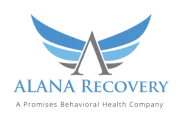Attention-deficit/hyperactivity disorder (ADHD) is often portrayed as an issue affecting young boys who can’t sit still in a classroom. But here’s the thing—not only do women experience ADHD, but they often go undiagnosed due to a lack of awareness and misconceptions about how the condition presents itself. For women, ADHD can look very different compared to common stereotypes. They may not struggle visibly with hyperactivity but instead experience intense inner restlessness, chronic overwhelm, or difficulties managing daily tasks. These signs of ADHD can have a significant impact on mental health, relationships, and, for some, even substance use.
If ADHD has you feeling frustrated, misunderstood, or out of control, you’re not alone. And help is available. At ALANA Recovery, we understand the unique challenges women with ADHD may face, especially when paired with substance use struggles. Start your recovery today by contacting our compassionate team and learning more about our ADHD treatment program.
What To Know About ADHD
Attention-deficit/hyperactivity disorder is widely misunderstood, especially in women. Research shows that ADHD in girls and women is often overlooked due to subtler symptoms compared to boys or men. While boys may display classic hyperactivity, girls typically internalize their symptoms, which can show up as chronic daydreaming, emotional dysregulation, or feeling overwhelmed.
The United States Centers for Disease Control and Prevention (CDC) estimates that around seven million children in the U.S. have been diagnosed with ADHD at some point. Boys were more likely to be diagnosed with ADHD than girls.1
This points to the likelihood that women with ADHD are frequently underdiagnosed, which increases their risk of other mental health challenges like anxiety, depression, and issues with self-esteem. But the story doesn’t have to end there. With proper ADHD treatment, women can feel understood, supported, and empowered to find balance in their lives.
What Is ADHD?
Simply put, ADHD is a neurodevelopmental disorder that affects attention regulation, impulse control, and sometimes hyperactivity. While it’s most commonly diagnosed in childhood, some individuals may not realize they have the condition until much later in life. ADHD comes from differences in how the brain is wired, which can make it harder to manage tasks, stay focused, and regulate emotions.
What Are the Signs of ADHD in Women?
For women, ADHD often shows up differently than it does in men, which means it’s often overlooked or misdiagnosed. Common signs include the following:
- Overwhelming feelings of mental clutter where everything feels urgent but hard to tackle
- Trouble focusing for long periods, meaning you often zone out during meetings, conversations, or while reading
- Chronic procrastination, particularly with tasks that feel boring or too challenging
- Heightened emotional sensitivity, leading to feelings of rejection, frustration, or being “too sensitive”
- Excessive multitasking, starting several tasks at once but struggling to complete any
- Disorganization, like misplacing everyday items such as keys, your phone, or important paperwork
- Fatigue from mental overdrive, caused by constantly feeling like you’re working in overdrive to catch up
Critically, untreated ADHD in women can contribute to feelings of inadequacy and increased stress, sometimes leading to unhealthy coping mechanisms like substance use.
If you’ve felt this way, know you’re not alone. Recognizing these signs is the first step toward finding tools to manage your symptoms and feel more in control.
Can ADHD Co-Occur with Addiction?
Yes. ADHD and substance use are more connected than many people think. Children living with ADHD may face additional challenges later in life, including an increased risk of developing a substance use disorder (SUD). Research shows that the risk of SUDs is twice as high for those struggling with ADHD and even higher—four times as high—for those with both ADHD and a comorbid conduct disorder.2
Many women with ADHD turn to self-medication, using substances like alcohol or stimulants to cope with symptoms such as restlessness or overwhelm. Living with ADHD can make it harder to manage impulsive behaviors, which sometimes leads to risky decisions around substance use. On top of that, dealing with mental health challenges like anxiety or depression can make recovery feel even more overwhelming. But when ADHD and addiction are treated together, the chances of success improve a lot. With the right support, finding relief and balance isn’t just possible—it’s within reach.
How ADHD Treatment Can Help
The path to managing attention-deficit/hyperactivity disorder starts with understanding. Knowing what’s driving your struggles can open the door to treatment options that improve your quality of life. Treating ADHD often involves a mix of therapy, medication, and practical strategies that can make a real difference in daily life.
Here’s how it can help women with ADHD feel more balanced and in control:
- Therapy that works for you – Cognitive-behavioral therapy (CBT) can be a game-changer for managing impulsivity, easing stress, and building time management skills.
- Medication if needed – For some women, ADHD medications can help with things like staying focused or managing emotional overwhelm.
- Mindfulness for calm in the chaos – Mindfulness techniques can help quiet racing thoughts and bring more clarity to your day.
- Coping strategies that fit your life – Tools like visual timers, breaking tasks into smaller steps, or creating ADHD-friendly spaces can help tackle everyday challenges head-on.
At ALANA Recovery, we take a whole-person approach to help individuals manage co-occurring ADHD and substance use. By addressing both conditions simultaneously, our clients gain tools for lasting recovery and a strong foundation for well-being.
Find Help and Support Today at ALANA Recovery
Recognizing attention-deficit/hyperactivity disorder in women is an important step toward understanding the challenges you face every day. While living with ADHD isn’t always easy, treatment can make an incredible difference, especially when paired with support for co-occurring conditions like addiction.
If you or someone you care about is dealing with substance use and ADHD, you don’t have to face it alone. At ALANA Recovery, we’re here to support you with care that’s understanding, professional, and personalized to your needs. Whether you reach out online or give us a call at 770.759.7474, we’ll help you explore how our programs can make a real difference in your recovery journey. We’re here for you—every step of the way.
Footnotes:

